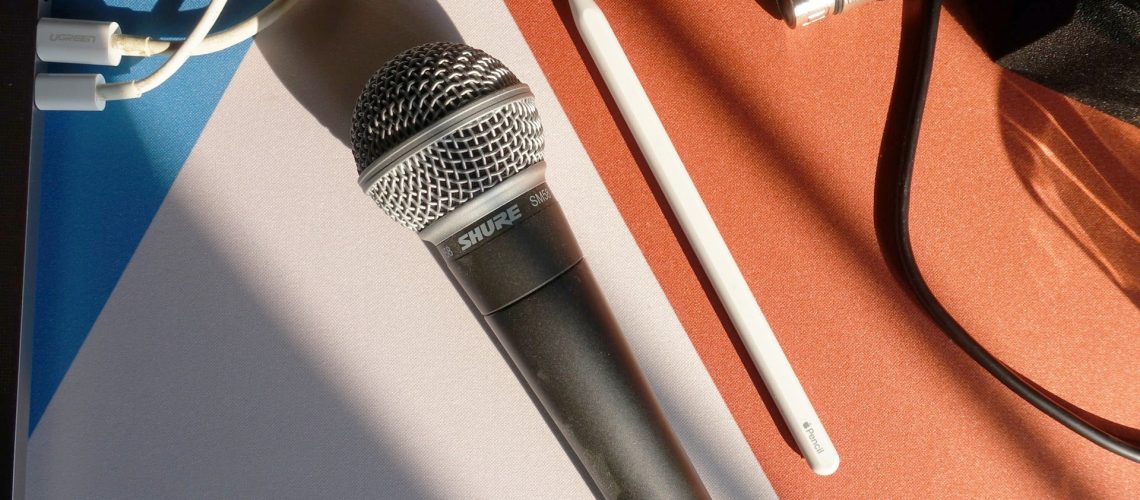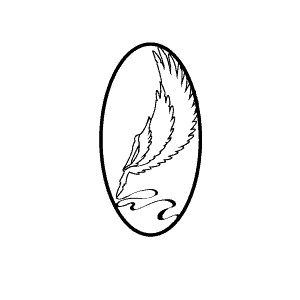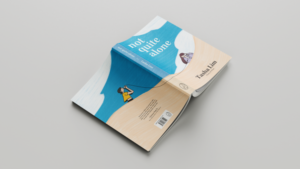Have you always been curious about slam poetry? How does one perform or write a slam poem and why do they feel like rap battles? Well then, we have worked hard on understanding it in totality and hope that you learn something from this post! We’ve broken it down into sections for your knowledge and convenience.
Slam poetry is the competitive version of spoken poetry where performers are required to recite their piece within a given time in front of a crowd. It’s definitely nerve-racking and not many are confident enough to be vulnerable on stage. Sounds daunting, doesn’t it? But good news! You don’t have to be alone on stage. You can be accompanied by a couple of friends as well.
Performing slam poetry is like story-telling, but shorter. There is a time limit of three minutes per performance in each round. Usually, there are three rounds where performers with the top scores for each round are qualified to continue the match to the next round. They move up the ranks of the competition until a slam poetry champion is chosen.
The spirit of any slam poetry event is generally encouraging and supportive so do not be too intimidated by the other competitors. After all, poetry is all about sharing and connecting with one another through beautiful words and emotions.
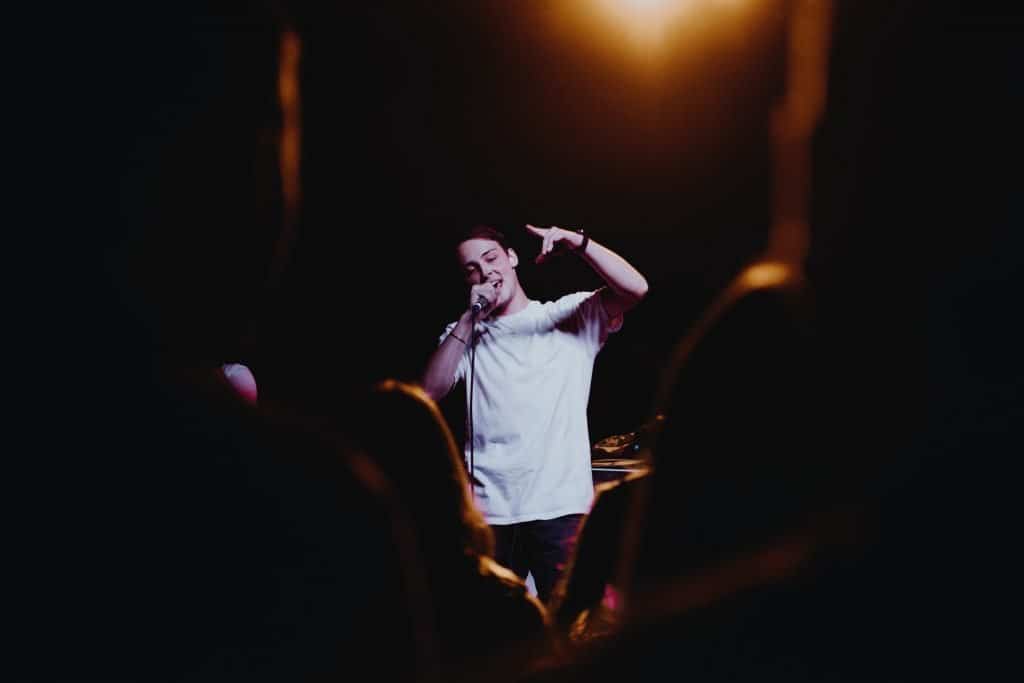
Why is it called “slam poetry”?
‘Slam’ means to criticize and since slam poetry is partly a competition, the audience is the judge and they have the power to praise or denounce a performer. It is known as ‘slam poetry’ because of the high energy brought on by the performer while conveying their poetry. Great energy, crowd presence, performance skills, and confidence will take you far.
What are the rules of a slam poetry competition?
Rules of slam poetry can differ from one competition to the other but there are general ones that most people follow. Among the basic rules are:
- Anyone, irrespective of gender, race, religion, disability, and age can perform.
- No props or musical background to aid the performer while performing.
- Performers must not exceed the three-minute limit for one poem in each round.
Another unique thing about slam poetry competitions is that the judges are chosen among the audience. You, as the performer, would not know who is judging and giving you scores and that adds the element of surprise! The judges would usually score on a scale from one to ten based on your performance and poem and you would know your result at the end of each round.
How do I write slam poetry?
- First off, your poetry must be an original piece and easy to understand for your audience. It’s also important for you to choose a topic that is relatable to your audience. Remember, slam poetry is half art and half competition, so your audience is your main focus while also writing a poem that is close to your heart. Pieces of poetry that are emotive and powerful are the ones that catch the audience’s attention.
- You should watch a lot of slam poetry performances first before you start on this journey. There are a plethora of Youtube videos on slam poetry for your own convenience and learning process. If you would like to experience a live performance, look up for poetry slam events that are happening around your area! Our very own local poetry organization called Poetry Cafe KL organizes the Youth Poetry Slam annually and other spoken poetry events.
- The second step is to write all your thoughts and ideas down on a piece of paper. Page poetry is different from slam poetry because the latter relies on the power of words to draw an image of the poet’s feelings. Readers can visualize through reading page poetry. However, for slam poetry, the performer assists the audience in painting the picture in their minds. Hence, slam poets have a huge responsibility to craft great poems so that their audience could pay attention and understand them.
- For example, instead of writing “I saw a girl and fell in love” write “My eyes caught the sight of the girl of my dreams and my heart skipped a beat, I knew then I am head over heels – if only I knew how to move my feet.” Craft your words creatively and try not to stress over writing! Writing should be an enjoyable journey for you to pour out your emotions on paper.
- Do you need to have rhymes in your slam poetry? Not necessarily. Not all poems have to rhyme. Rhyming is just a defining tool to make your poem sound more lyrical to readers or listeners. But if you want a nice sound to your poetry, then a rhyme or two will be your best buddy. What is more important than rhythm is your theme. Great expressive and figurative language is what makes a poem memorable and loved by readers and listeners.
How do I perform slam poetry?
- After writing your slam poem, memorize your poem and feel the words when you perform. You should project a loud and clear voice for your poem to reach the audience. Practice performing in front of the mirror and record yourself to analyze your tone, emotion, volume, and intonations. You could also share your recording with your family and friends! Ask them for feedback and comments on areas you should improve on.
- Practice, practice, practice. It’s so important to practice your poem before competing. Watch slam poetry competition videos online for inspiration and motivation. Pause it after an opponent has said their piece, and come up with your reply. Analyze your topic advantages by understanding the poet’s strengths and weaknesses.
- On the competition day itself, remember to always stay calm and relaxed. Breathe, and clear your mind. Don’t be afraid to lose and remind yourself that every loss is a lesson.
- Don’t forget to drink lots of water and rest well before your performance. Practice with confidence before you finally present yourself to your crowd. A lively and confident personality on stage helps you to perform better and your audience can also have a great time listening to you.
- Be gracious with your opponent and stay respectful. A positive attitude and atmosphere will help you stay calm and confident!
- Lastly, have fun! Slam poetry is about you sharing your art and thoughts to form an emotional and intellectual connection with the audience. Don’t stress too much about being the best and most perfect because no one is perfect.
What are good topics for slam poetry?
Topics that are meaningful and relatable. One of the things that attract people to watch slam poetry (other than the powerful performance brought by poets) is the issues covered. Writing is easy but the difficult part of writing that is how you weave your words into a great slam poem. Slam poems should convey strong messages or lessons that teach your audience or are able to change their perspectives.
When you sign up for a slam poetry competition, analyze who your competition is. Study what are the frequent topics they normally go to and write poetry that is able to counter that. They might have videos online. Make sure there are as few blind spots as possible.
Most topics that are possible for slam poetry competitions range from love to social issues like climate change, racism, bullying, and gender inequality. Do a lot of pre-reading on all types of genres and topics so that your mind can be as sharp as a tack. Just like writing any other materials, you should do your research to produce a well-thought-out piece.
Slam poems must be attention-grabbing and they must take your audience through a journey, similar to story-telling. But, this is different from story-telling because you don’t have the luxury of time to perform the whole novel on stage. That is why you should constantly write and practice while doing research on slam poems to enhance your skills.
Differences between slam poetry and spoken word poetry, page poetry, and rap battles.
Spoken Poetry
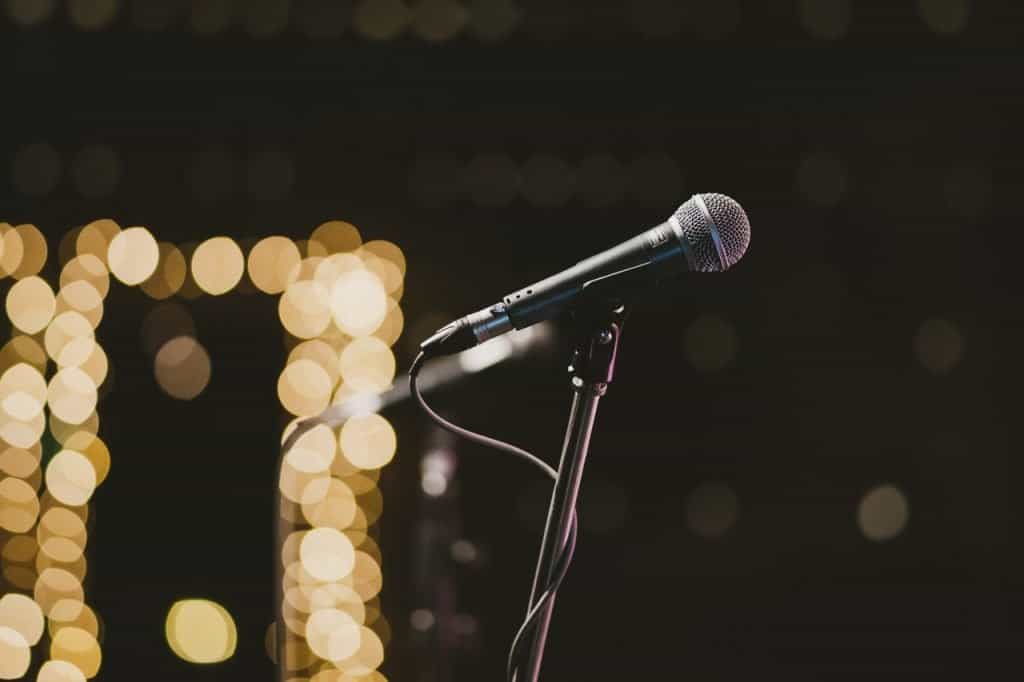
Spoken word poetry is a type of oral art that transcends poetry on pages. In the words of Basil Bunting, “Poetry lies dead on the page, until some voice brings it to life.” This type of poetry requires a good stage presence to convey the precise emotions and intentions the speaker wants his or her audience to feel in the crowd. A great performance of spoken poetry can touch the soul of the listeners and connect with them on an emotional level.
Both spoken word and slam poetry are designated for performance, like story-telling but the former is less competitive. Spoken poetry is more languid and relaxed, making its purpose to tailor a connection with the audience without the competitive spirit. Just like slam poetry, performers of spoken poetry usually perform self-expressions on a myriad of topics like race, politics, gender inequality, social injustice, and of course, love.
Page Poetry
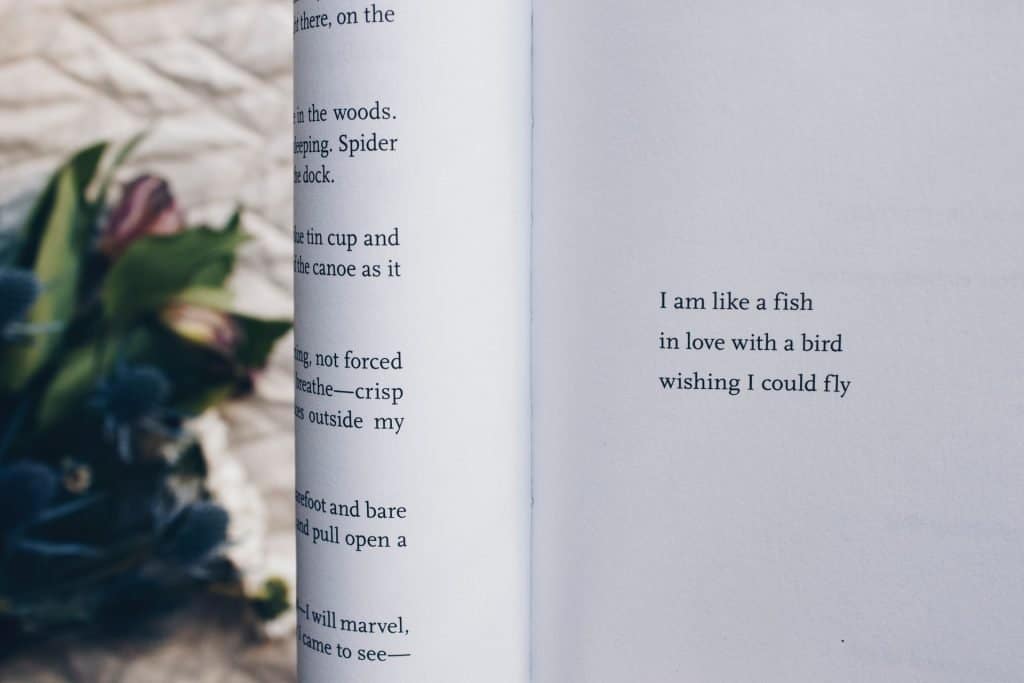
Nothing beats the touch of real physical books and as pleasing as reading a good poetry book with a cup of hot tea during a rainy day. Page poetry is the most famous kind of poetry in this modern age. Social media like Instagram and Twitter are popular platforms for poets and writers alike to reach their readers while being in the comfort of their own homes. It’s also a creative outlet for these types of poets where they find performing their work on stage absolutely terrifying. It is the most versatile kind of poetry in the sense that you can find it in bookstores or in the form of ebooks and audiobooks.
Additionally, poetry on pages is more focused on technical writing and the structure. Unless you’re writing a free verse (in which you are free to write in any way you want), poetry like haikus, sonnets, or couplets has their own rules and rhythms. You can check out our blog post on how to write poetry here! Slam poetry and spoken word poetry are more liberal in its writing form because you can write it in any way you want and it’s up to you to insert pauses and adjust volumes during your performance!
Page poetry is more personal and sentimental in the sense that the words woven on written are meant to be interpreted by the readers themselves. With their own conclusion and interpretation of the poems, it creates a more sentimental and personalized value to the readers. For slam poetry, the listeners are often influenced by the emotions and energy portrayed by the performers.
Rap Battles
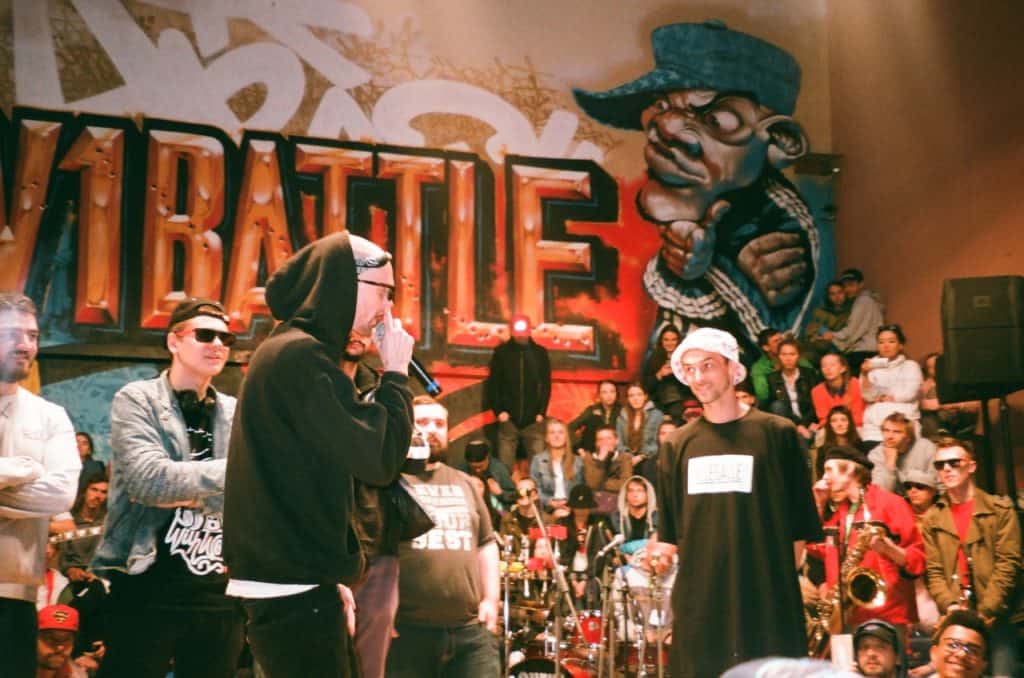
Slam Poetry does not allow music but rap battles do. Have you ever heard a slam poet performing and thought to yourself that it sounds very much like rapping? Well, they do sound similar but the two are completely different! Some slam poetry might have a similar rhythm and mood like a rap battle but rap battles do not share the same sentiments as slam poetry.
Rap battles are a competition where two rappers improvise lyrics from songs to insult their opponent. A competitor writes their own lyrics to magnify the insult to “burn” the other rapper. Slam poetry is all about expressing inspiring messages while also making the listeners open up their minds on topics like love, equality or climate change. Slam poetry is actually more similar to debating compared to rap battles. Rap battles include a lot of bragging, roasting, boasting to their opponent in order to get the audience riled up. It’s all in good fun anyway as rappers have mutual respect for one another while insults fly!
Both competitions are different but it doesn’t mean one is more legitimate than the other. You should always do whatever brings the most joy to you while challenging your creativity.
5 Famous Slam and Spoken Poets
Day by day, the world of slam poetry is getting more attention through various platforms. Through this, poets who are passionate about slam poetry are getting recognized for their artistic work.
1. Harry Baker

Harry Baker is the youngest World Slam Poetry Champion in 2012 and is currently a full-time poet with a maths degree. He’s been performing and sharing his poems on various stages including Ted Talks and has since done many projects to broaden his work as a poet. In 2014, he published his first collection of poetry called The Sunshine Kid that consists of narratives about his journey on becoming a performer in slam poetry. You can find more about this British poet and his career on his website, Twitter, and Instagram. Watch his amazing slam poetry performance for Ted Talks in Exeter here!
2. Rudy Francisco

Rudy Francisco is one of the most recognizable names in both spoken poetry and slam poetry world. He won first place in the 2009 National Underground Poetry Slam and the 2010 Individual World Poetry Slam Competition. This Californian poet has been also influencing today’s youth with spoken word poetry through various workshops and performances at preparatory schools, community centers, and universities across the United States.
His poems center around issues on race, class, gender, and religion based on his personal narratives. To date, he has published a few books that offer a variety of themes that will sure to offer a fresh perspective for readers including, helium, published by Button Poetry. Undeniably, both his written and spoken work will continue to empower people. Check out his website, Twitter, and Instagram to see updates about his career as a poet.
Watch his performance of his slam poem “Rifle” from his debut book, helium, on The Jimmy Fallon Show!
3. Solli Raphael
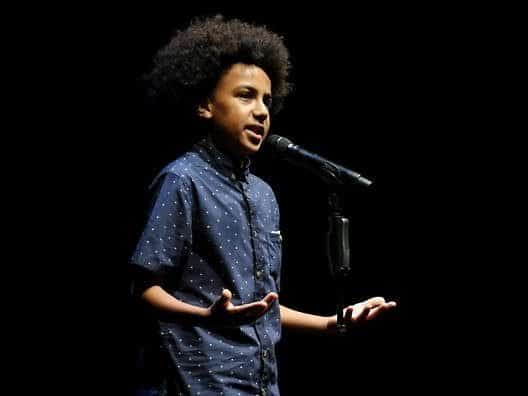
Another great slam poet that is catching the media’s attention with his powerful and inspiring poems through his slam poetry performances is Solli Raphel. At just the young age of 12, Solli was the youngest winner of the Australian Poetry Slam held in Sydney Opera House in 2017. As an award-winning poet, his pieces of work shine on topics that concern our deteriorating environment and the importance of social justice.
His first poetry book, Limelight was published in 2018 and won the Nautilus Book Award in 2019 for best middle-grade non-fiction. Following the success of his first book, he published his second book, Spotlight in 2020 that covers topics from bullying to climate change. Find out more about this blooming poet through his website, Instagram, and Facebook.
Catch his winning 2017 performance on “Australian Air” that catalyzed his career as a slam poet!
4. Sarah Kay
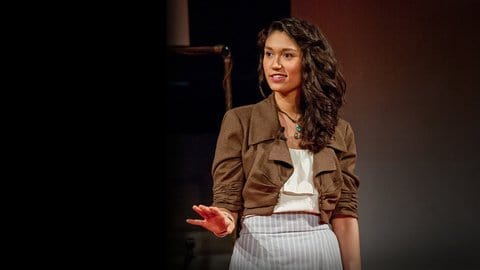
Sarah Kay’s name is one of the names that can’t go unmentioned in the slam and spoken word poetry world. Not only is she a poet and a performer but she is also an educator. She is the founder of Project Voice, an organization that utilizes spoken word poetry to entertain, educate and inspire people of any age.
She has performed and shared her poetry in countless countries and a part of her written work was featured in Netflix’s original series, 13 Reasons Why. She is the author of four best-selling poetry books including All Our Wild Wonder. For more about Sarah Kay and her work, go to her website, Twitter, and Facebook.
Enjoy her performance on “Private Parts” where Kay beautifully shares that intimate love consists of sharing personal details with our partners and that can also lead to a painful heartbreak.
5. Phil Kaye
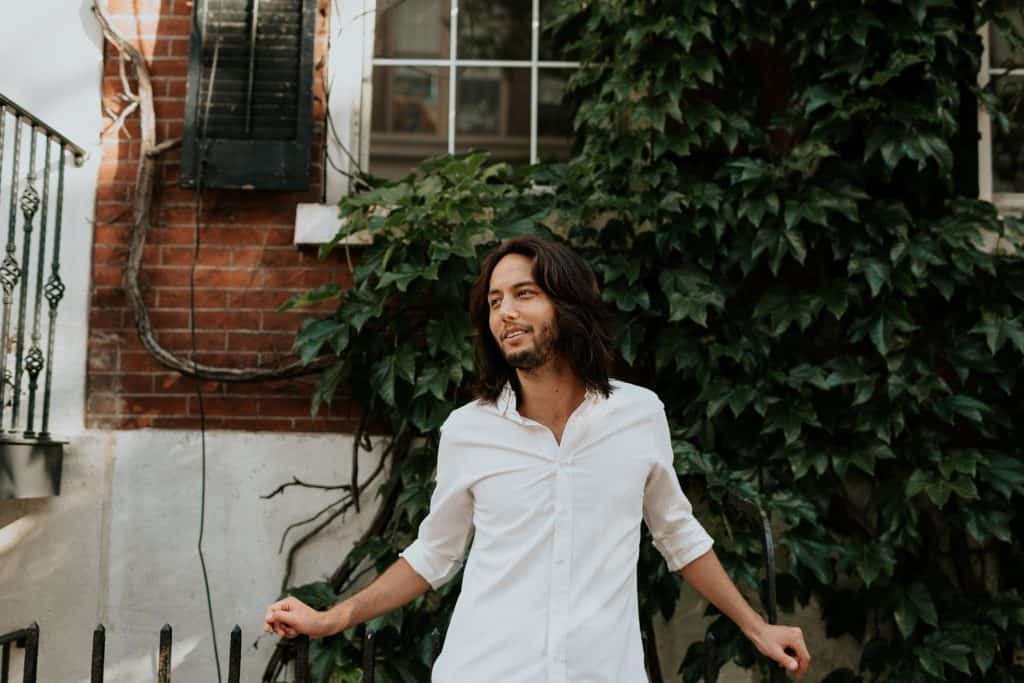
Phil Kaye is a Japanese-American poet and artist. He is a National Poetry Slam finalist, and his debut full-length poetry book, Date & Time, was published in 2018 by Button Poetry. His work has been featured in settings ranging from The New Yorker to the Museum of Modern Art in New York City and viewed millions of times online. He has performed his original work in twenty countries and was invited to open for His Holiness The Dalai Lama for the celebration of his 80th birthday.
A former teacher of weekly poetry workshops in maximum-security prisons, Phil was the head coordinator of Space in Prisons for the Arts and Creative Expression (SPACE). He is also the co-founder of Project VOICE alongside poet Sarah Kay. You can go to his website and Instagram for more information about his career as a poet and an artist.
Watch one of his best performances on Button Poetry with his slam poem “Repetition”!

